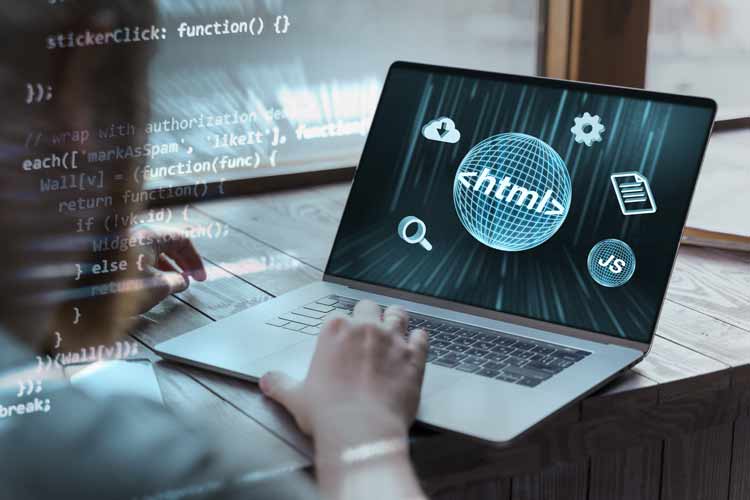Have you ever wanted to learn programming but felt intimidated by complex codes and jargon? Fear not! Python is a beginner-friendly language that will make your coding journey fun and rewarding. This guide will demystify Python, taking you from a complete novice to a confident coder. We’ll explore the basics, dive into practical examples, and unravel the secrets of this versatile language. By the end, you’ll be equipped with the skills to tackle Python Interview Questions and embark on exciting projects. Get ready to unleash your creativity and problem-solving abilities with Python!
Alt Text- > Demystifying Python: A Beginner’s Guide to Programming
Table of Contents:
- Introduction to Python Programming
- Setting Up Your Python Environment
- Basic Python Syntax
- Variables and Data Types
- Operators and Expressions
- Control Flow: Conditional Statements and Loops
- Functions in Python
- Working with Lists, Tuples, and Dictionaries
- File Handling in Python
- Introduction to Object-Oriented Programming in Python
- Conclusion: Mastering the Basics of Python Programming
Introduction to Python Programming
Python is a high-level programming language that has gained immense popularity in recent years due to its simplicity, versatility, and readability. It is widely used in various fields such as web development, data analysis, artificial intelligence, and more. In this beginner’s guide, we will explore the fundamentals of Python programming and help you get started on your journey to mastering this powerful language.
Setting Up Your Python Environment
Before you can start writing Python code, you need to set up your programming environment. The first step is to install Python on your computer. You can download the latest version of Python from the official website and follow the installation instructions. Once Python is installed, you can use a text editor or an Integrated Development Environment (IDE) such as PyCharm or Visual Studio Code to write and run your Python code.
Basic Python Syntax
Python has a simple and clean syntax that makes it easy to read and understand. In Python, statements are written line by line, and indentation is used to define blocks of code. Here is an example of a simple Python program that prints “Hello, World!”:
print(“Hello, World!”)
Variables and Data Types
In Python, variables are used to store data values. You can assign a value to a variable using the assignment operator (=). Python supports various data types such as integers, floats, strings, lists, tuples, and dictionaries. Here is an example of declaring variables in Python:
x = 10
y = 3.14
name = “John”
Operators and Expressions
Python provides a wide range of operators for performing arithmetic, comparison, logical, and bitwise operations. You can use these operators to manipulate data and perform calculations. Here are some examples of using operators in Python:
a = 10
b = 5
sum = a + b
product = a * b
is_equal = (a == b)
Control Flow: Conditional Statements and Loops
Conditional statements and loops are essential concepts in programming that allow you to control the flow of your code. In Python, you can use if-else statements to make decisions based on certain conditions, and for loops and while loops to iterate over a sequence of elements. Here is an example of using conditional statements and loops in Python:
age = 20
if age >= 18:
print(“You are an adult”)
else:
print(“You are a minor”)
for i in range(5):
print(i)
Functions in Python
Functions are reusable blocks of code that perform a specific task. In Python, you can define functions using the def keyword and call them by their name. Functions can take parameters and return values. Here is an example of defining and calling a function in Python:
def greet(name):
return “Hello, ” + name
message = greet(“Alice”)
print(message)
Working with Lists, Tuples, and Dictionaries
Lists, tuples, and dictionaries are data structures in Python that allow you to store and manipulate collections of data. Lists are ordered and mutable, tuples are ordered and immutable, and dictionaries are unordered and mutable. Here are examples of using lists, tuples, and dictionaries in Python:
# List
fruits = [“apple”, “banana”, “cherry”]
print(fruits[0])
# Tuple
colors = (“red”, “green”, “blue”)
print(colors[1])
# Dictionary
person = {“name”: “John”, “age”: 30}
print(person[“name”])
File Handling in Python
File handling is an important aspect of programming that allows you to read from and write to files on your computer. In Python, you can use the open() function to open a file and perform various operations such as reading, writing, and closing the file. Here is an example of reading from a file in Python:
file = open(“example.txt”, “r”)
content = file.read()
print(content)
file.close()
Introduction to Object-Oriented Programming in Python
Object-oriented programming (OOP) is a programming paradigm that allows you to organize your code into objects that have attributes and methods. In Python, you can create classes to define objects and instantiate objects from those classes. Here is an example of defining a class and creating an object in Python:
class Person:
def __init__(self, name, age):
self.name = name
self.age = age
def greet(self):
return “Hello, my name is ” + self.name
person = Person(“Alice”, 25)
message = person.greet()
print(message)
Conclusion: Mastering the Basics of Python Programming
In this beginner’s guide to Python programming, we have covered the fundamental concepts and syntax of Python, including variables, data types, operators, control flow, functions, data structures, file handling, and object-oriented programming. By mastering these basics, you will be well-equipped to start writing your own Python programs and exploring more advanced topics in the world of programming. Python is a versatile language that can be used for a wide range of applications, so continue practicing and experimenting with your code to deepen your understanding and proficiency in Python programming. Happy coding!
Read More: Blockchain Beyond Cryptocurrency: Real-World Applications

